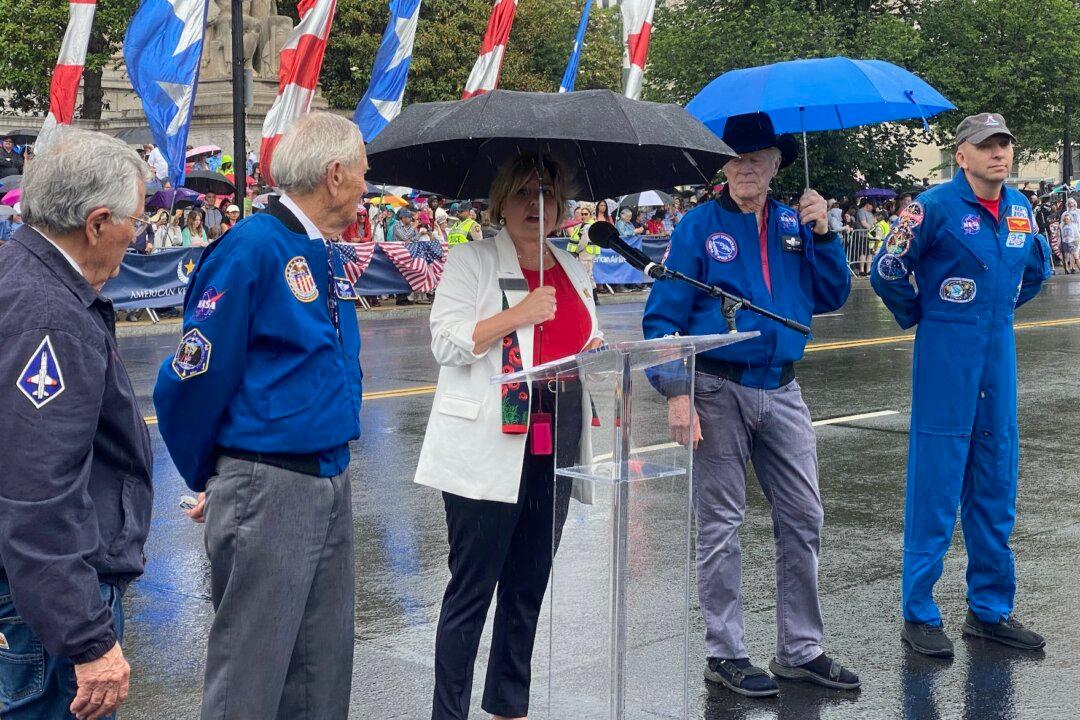Veteran moonwalkers of the Apollo Program say that the United States needs to take space seriously as a front in a “new Cold War” with China.
Astronauts Charles Duke of Apollo 16, Harrison Schmitt of Apollo 17, Rusty Schweikert of Apollo 9, and Randy Bresnik of Artemis II, an upcoming mission to the Moon, discussed the future of the final frontier in comments to The Epoch Times at the National Memorial Day Parade in Washington on May 29.





